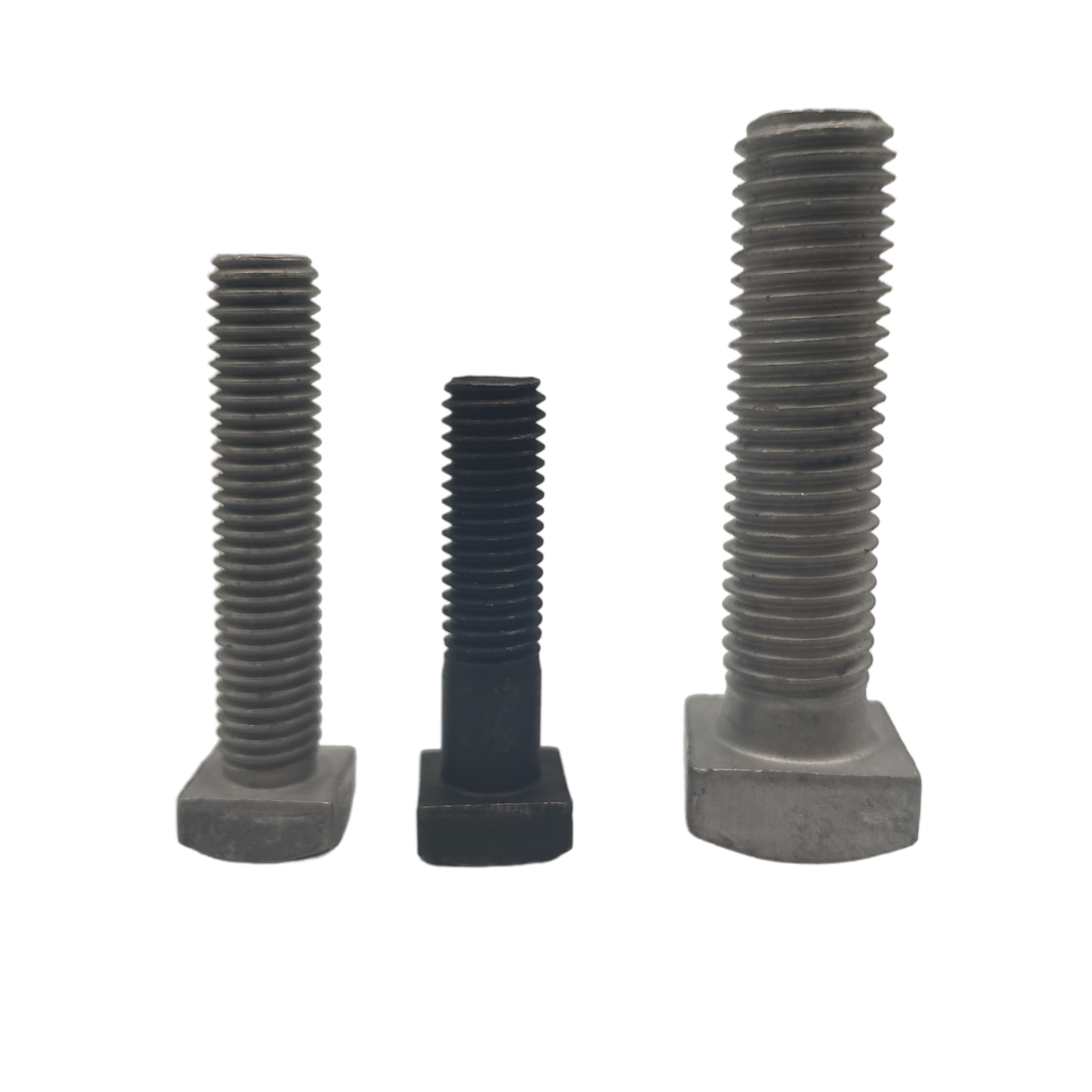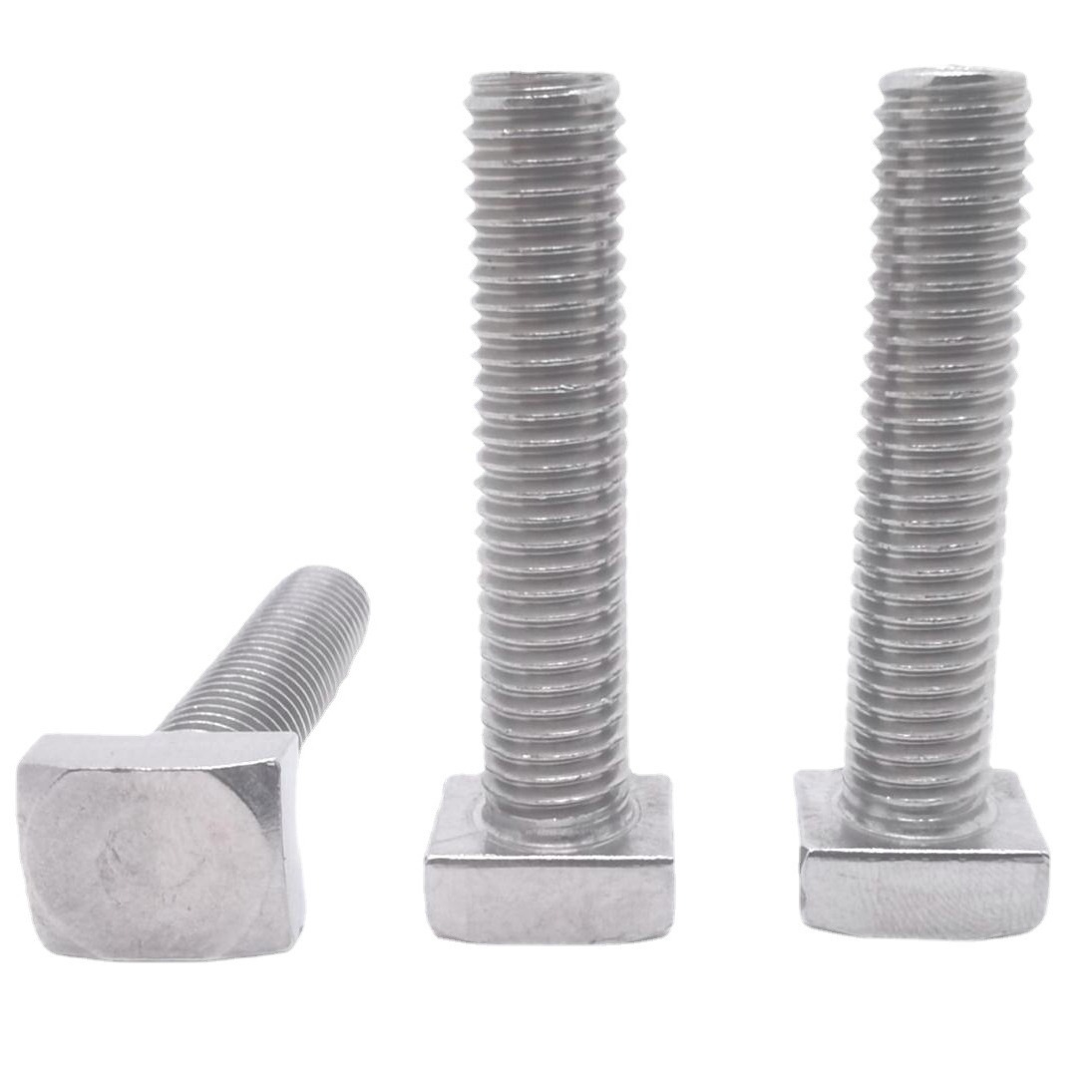Compreendendo o Papel Essencial dos Elementos de Fixação na Construção e Manufatura Modernas
Os elementos de fixação formam a estrutura básica de incontáveis produtos e estruturas que encontramos diariamente. Das cadeiras em que nos sentamos aos edifícios em que vivemos, os tipos de elementos de fixação desempenham um papel crucial em manter nosso mundo unido. Esses componentes mecânicos atuam como heróis silenciosos da construção, manufatura e processos de montagem, garantindo que peças separadas permaneçam seguramente conectadas sob diversas condições e cargas.
O mundo dos fixadores é incrivelmente diversificado, com cada tipo projetado para atender aplicações e requisitos específicos. Seja você um profissional da construção, entusiasta de trabalhos manuais ou alguém que deseja expandir seus conhecimentos sobre materiais de construção, compreender os diferentes tipos de fixadores e suas aplicações é essencial para tomar decisões informadas em qualquer projeto.
Fixadores Roscados Comuns para Aplicações do Dia a Dia
Parafusos e Suas Diversas Aplicações
Parafusos representam um dos tipos de fixadores mais amplamente utilizados na construção e na manufatura. Esses fixadores roscados normalmente possuem uma cabeça em uma extremidade e filetes no corpo, sendo projetados para serem usados com porcas a fim de criar conexões seguras. Diferentes estilos de cabeças de parafusos, incluindo sextavadas, quadradas e soquetes, atendem a diversos propósitos e requisitos de instalação.
Parafusos de máquina, parafusos de cabeça arredondada e parafusos estruturais possuem características únicas que se aplicam a diferentes usos. Parafusos de máquina, por exemplo, são excelentes para montagem de precisão em equipamentos, enquanto parafusos de cabeça arredondada, com suas cabeças lisas e distintivas, são ideais para construção em madeira onde se deseja um acabamento suave.
Parafusos: Soluções Autoperfurantes Versáteis
Parafusos diferem de parafusos comuns por sua capacidade de criar rosca própria durante a instalação. Parafusos para madeira, parafusos para chapa metálica e parafusos autoatapantes representam apenas algumas variedades dentro da vasta gama de tipos de fixadores desta categoria. Cada tipo apresenta padrões de rosca e designs de cabeça específicos, otimizados para os materiais e aplicações pretendidas.
A evolução do design dos parafusos levou a inovações como cabeças torx e acionamentos quadrados, que proporcionam um melhor engajamento com a ferramenta e reduzem o desgaste em comparação com as cabeças tradicionais Phillips ou ranhuradas. Essas melhorias aumentaram significativamente a eficiência e a confiabilidade da instalação em várias indústrias.
Fixadores Especializados para Indústrias Específicas
Aeroespacial e Aplicações de Alto Desempenho
A indústria aeroespacial exige tipos especializados de fixadores que atendam a rigorosos requisitos de segurança e desempenho. Esses fixadores frequentemente incorporam materiais avançados, como ligas de titânio, e possuem filetes precisos e tratamentos superficiais para suportar condições extremas. Os fixadores aeroespaciais devem manter sua integridade sob alta vibração, variações de temperatura e cargas significativas.
Exemplos incluem porcas de barril flutuantes, parafusos de tração de alta resistência e rebites especializados projetados especificamente para a construção aeronáutica. Esses componentes passam por processos rigorosos de testes e certificação para garantir que atendam aos padrões da indústria e aos requisitos de segurança.
Soluções de Fixação Automotiva
Fabricantes automotivos dependem de diversos tipos de fixadores projetados para enfrentar os desafios específicos da montagem e manutenção de veículos. Isso inclui parafusos especializados com especificações precisas de torque, fixadores de liberação rápida para painéis de serviço e designs resistentes a vibrações que mantêm a estabilidade sob operação contínua.
Veículos modernos estão incorporando cada vez mais materiais compósitos leves, impulsionando o desenvolvimento de novos designs de fixadores capazes de unir com segurança diferentes tipos de materiais sem causar danos ou degradação. Fixadores de encaixe, fixadores de um quarto de volta e clipes especializados representam soluções inovadoras nesse campo em constante evolução.
Opções de Fixadores sem Rosca
Rebites e Suas Aplicações Industriais
Rebites oferecem soluções de fixação permanentes em diversas indústrias. Esses tipos de fixadores criam conexões fortes e confiáveis por meio de deformação mecânica. Rebites sólidos, rebites cegos e rebites semi-tubulares possuem cada um funções específicas na fabricação e construção.
A indústria aeroespacial e automotiva utiliza especialmente rebites por sua confiabilidade e resistência à vibração. Sistemas modernos de rebitagem evoluíram para incluir ferramentas e técnicas especializadas que garantem qualidade consistente na instalação e integridade estrutural.
Pinos e Dispositivos de Retenção
Pinos representam tipos simples, porém eficazes, de fixadores usados para alinhar componentes, evitar rotação ou fixar peças removíveis. Contrapinos, pinos-guia e pinos de mola desempenham funções únicas em montagens mecânicas. Esses fixadores geralmente trabalham em conjunto com outros componentes para criar conexões seguras e úteis.
A seleção dos tipos apropriados de pinos depende de fatores como requisitos de carga, acessibilidade à instalação e se a conexão precisa ser permanente ou removível. Compreender essas considerações é crucial para uma implementação bem-sucedida em qualquer aplicação.
Considerações e Critérios de Seleção de Materiais
Materiais e Revestimentos para Fixadores Metálicos
A eficácia dos tipos de fixadores depende fortemente da sua composição material e dos tratamentos superficiais. Os fixadores de aço, que variam desde o aço carbono padrão até ligas especiais de aço inoxidável, constituem a base da maioria das aplicações. Diferentes revestimentos e placas, como zinco, cromo ou níquel, oferecem resistência adicional à corrosão e propriedades estéticas.
A seleção do material deve levar em conta fatores como exposição ambiental, compatibilidade química e o potencial de corrosão galvânica ao unir metais diferentes. Compreender essas interações ajuda a prevenir falhas prematuras e garante a confiabilidade a longo prazo.

Aplicações de Fixadores em Compósito e Plástico
A fabricação moderna utiliza cada vez mais fixadores de materiais não metálicos, especialmente em aplicações onde a redução de peso, resistência química ou isolamento elétrico são cruciais. Fixadores plásticos e de compósitos oferecem vantagens únicas em situações específicas, como montagem de eletrônicos ou ambientes corrosivos.
Esses materiais continuam evoluindo, com novos compósitos oferecendo relações de resistência-peso aprimoradas e características de desempenho melhoradas. A seleção dos fixadores não metálicos adequados requer uma análise cuidadosa das temperaturas de operação, requisitos de carga e exposição química.
Perguntas Frequentes
Como escolher o tipo correto de fixador para o meu projeto?
A seleção dos tipos apropriados de fixadores depende de vários fatores, incluindo os materiais que estão sendo unidos, requisitos de carga, condições ambientais e se a conexão precisa ser permanente ou temporária. Considere fatores como resistência à corrosão, requisitos de resistência e facilidade de instalação ao fazer sua seleção.
Quais são os modos de falha mais comuns dos fixadores?
Falhas comuns em fixadores incluem danos nas roscas, fadiga do material, corrosão e instalação incorreta. Muitas falhas podem ser evitadas escolhendo o tipo correto de fixador, técnicas adequadas de instalação e procedimentos de manutenção apropriados. A inspeção regular e a substituição de fixadores críticos ajudam a garantir a confiabilidade a longo prazo.
Existem normas industriais para especificações de fixadores?
Sim, várias organizações estabelecem e mantêm padrões para tipos de fixadores, incluindo ISO, ASTM e SAE. Esses padrões definem requisitos para dimensões, materiais, classificações de resistência e procedimentos de teste. Seguir esses padrões garante compatibilidade e confiabilidade em diferentes aplicações e indústrias.
Sumário
- Compreendendo o Papel Essencial dos Elementos de Fixação na Construção e Manufatura Modernas
- Fixadores Roscados Comuns para Aplicações do Dia a Dia
- Fixadores Especializados para Indústrias Específicas
- Opções de Fixadores sem Rosca
- Considerações e Critérios de Seleção de Materiais
- Perguntas Frequentes

